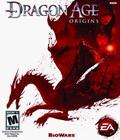Genre: Role-Playing
Publisher: Electronic Arts
Developer: BioWare
Release Date: Q1 2009
I first remember hearing about Dragon Age back around the time when Jade Empire came out. It was what Bioware was pointedly not discussing at E3 2006; it was first an MMORPG, then it was not, and then it was again. Every project they were involved with was, for a time, either thought to be Dragon Age or initially viewed with irritation because it obviously wasn't.
It's odd to live in a world where the game actually exists. It feels like a dream or a trap or perhaps a dream in which there is a trap.
BioWare was hidden at E3, giving demos in the basement of a hotel a few blocks away from the Staples Center. They've described Dragon Age: Origins, variously, as "a return to our roots and origins," and as a "spiritual sequel" to the Baldur's Gate games. It's a single-player PC fantasy RPG that's currently in alpha, after being in development for four years; the universe it's set within is designed to support far more stories than simply this one, as the subtitle might indicate.
It's about changing the way the game world perceives you, and how you perceive it, through controlling your character's reactions. If you've played any of the last several BioWare games, you probably have a pretty good idea how that works; at every turn, you'll be given choices as to how to act in a given situation. Be kind to a prisoner, and you may be rewarded with a key that opens a treasure chest; kill him and take it, and the prisoner's guards will probably revisit that fact at the worst possible time.
In Dragon Age, you're a Grey Warden, one of an elite order that protects humanity from something called the Blight, and the Darkspawn it commands. The player's Grey Warden is a variable thing; BioWare showed off an elven wizard and a human warrior, with the promise that more types of characters would be available. You can select an origin story for your protagonist and play through it, helping to determine how the world sees you at the start of the game.
The segment of the game that BioWare was showing off was set in the ruins of Ostagar, where a hilariously naïve king, Orlando Bloom look-alike Kalin, and his generals were preparing for an imminent attack by the Blight's army of Darkspawn minions.
That night, after you go through the final ritual to become a Grey Warden, you'll be on the front lines of the battle against the Blight. Kalin has a clever plan, which isn't going to go the way he wants it to.
BioWare, since they've started making original stories for their games, has put a lot of effort into their world-building. Dragon Age exhibits the beginnings of an original fantasy universe. From what little I've seen, it has a strong Lord of the Rings vibe, made somewhat fresher by getting the player to react snarkily to it. BioWare's track record speaks for itself on this one, though, and there's a lot of the game we haven't seen yet.
In the demo at E3, the player's role in the siege of Ostagar is to retake a signal tower from the Blight's minions so Kalin can signal for reinforcements. That, in turn, leads to combat, which isn't entirely unlike that of Knights of the Old Republic. Pause and play makes a return here, allowing you to stop the action at any time in order to adjust your characters' tactics and trigger the use of various talents. The quasi-real-time combat engine of Jade Empire or Mass Effect isn't in effect here. Instead, you'll be taking direct control of up to four characters, and possibly more.
Debuffs and buffs look like they'll play a major role in the final product, with abilities like paralysis and fiery weapons being used to dramatic effect. You can also use various magic spells to interact with the environment or with one another; for example, a grease spell creates a flammable oil slick on the ground, impeding progress through it, and allowing you to ignite that area with a fireball.
More than anything else, though, Dragon Age: Origins seems like the culmination of BioWare's recent work. You can see elements of several of their past games there; KotOR and Baldur's Gate influence the combat, Mass Effect's sense of scope, and the fluidity of Jade Empire all jumped out at me. BioWare's also promised a fair bit of the absurdity and humor that's characterized parts of its past output, as well as "some of the best writing we've ever done," to quote them directly. If you've ever enjoyed a BioWare game, and at this point, almost everyone has, Dragon Age is targeted straight at you.
More articles about Dragon Age: Origins












 Dragon Age: Origins represents BioWares return to its roots, delivering a fusion of the best elements of existing fantasy works with stunning visuals, emotionally-driven narrative, heart-pounding combat, powerful magic abilities and credible digital actors. The spirit of classic RPGs comes of age, as Dragon Age: Origins features a dark and mature story and gameplay.
Dragon Age: Origins represents BioWares return to its roots, delivering a fusion of the best elements of existing fantasy works with stunning visuals, emotionally-driven narrative, heart-pounding combat, powerful magic abilities and credible digital actors. The spirit of classic RPGs comes of age, as Dragon Age: Origins features a dark and mature story and gameplay.























